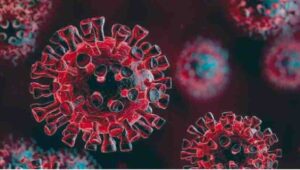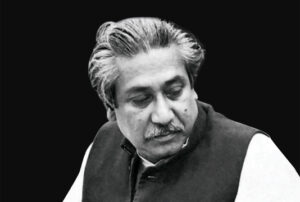Dr. M. S. Haq
There exist at present several alternatives for Bangladesh to deal with constraints associated with modus operandi of conducting the upcoming election in the country to the satisfaction of all people of all of Bangladesh – as humanly and otherwise practicable though.The country could settle the matter through arbitration via for example good offices of SAARC secretary-general or good offices of the UN secretary-general – with or without (or otherwise as applicable) help and assistance from say influential friends of Bangladesh including the US. Political parties of Bangladesh including JP could assist the major parties – AL and BNP – in for instance convincing them for referring the matter

to arbitrators for the purpose. The proposed arbitration could be justified under the present circumstances because – one, stances of AL and BNP on the election matter have apparently and so far (up to today, 17 October 2013) failed to create initial conditions locally and nationally via political reconciliations or other means in favor of a free, fair, and credible election (hereinafter: the fair election or fair election) in the country in near future – that will be acceptable to all people of all of Bangladesh, as maximally practicable though; two, pulling and sharing of multi-country efforts, as well as resources for say political problem solving at country levels are becoming a growing practice under progressive regimes of global reintegration + interdependencies, aiming at inter alia and as appropriate protecting peoples, countries and scarce useful resources from harmful side effects of above regimes and generating benefits for all concerned from collective fights against uncertainties. The development brightens prospects for Bangladesh in areas such as and as appropriate – harnessing of collective opportunities including motivations in pursuits of the fair election in the country; three, the arbitration backed fair election could minimize if not eliminate possible losses of human lives, properties and controllable national wastage that might arise out of and in the course of say election related violence. A proper involvement of SAARC in above and similar areas accompanied by visible successes by it in relevant areas could help transform SAARC into a mini UN of the region through the foreseeable future – hopefully, capable of for example supporting and assisting member countries, as well as people, in a substantive and profitable fashion, through transitions of global power shifts in that future.
Another possible alternative for the fair election could involve inter alia facilitation of the fair election with the help and support of armed forces of Bangladesh, assisting the country’s election commission – in pursuits of the fair election – under the overall leadership of the president. During 90 days of election time arrangement of governance, secretaries of government ministries, heads of government departments (as appropriate) and concerned others should report to office of the president – they should be duty bound to assist the election commission and the forces in matters pertaining to, connected with,
and ancillary to, the fair election during pre-election, election and post election periods, leading eventually to peaceful and smooth transfer of power, just-in-time. During the
above period, the office of president could be run a by panel of retired and competent superior court judges – to be appointed upon agreement by at least the major political
parties – for purposes such as assisting the president in overseeing the work of secretaries, heads of departments and concerned others.
The present day AL stances on modus operandi for conducting the upcoming election in the country could work fine provided that resultant outcomes are able to take care of,
in a proper manner, possible events similar to 1996 and to the rule of army supported government of recent times, to mention a few – all, during the life time of next elected
government.
Here is still another alternative. All political parties, within and outside the parliament, should – individually and collectively liberate themselves from harmful intra and inter-
party politics in the national interest of Bangladesh; cultivate the critical mass of political culture that should be compatible with the country’s future, enabling the country to
harness maximally its challenges and opportunities including potentials in pursuits of becoming a developed nation in the world in not too distant a future, to the satisfaction of
all concerned; and create, as well as sustain powerful thrusts of political reconciliations that should be pro-people and pro-Bangladesh, to mention a few, for say resolution
of present and future political disputes at affordable costs via for example discourses, diplomacies, negotiations, commitments, patience, perseverance, emotional intelligence,
leadership and result-orientations in overall pursuits of freeing the country from hunger, poverty, corruption, illiteracy, inequality, inequity, human rights violations, harmful
political autocracy and other anti-people and anti-state things – all, under regimes of the right and affordable justice for all at all level for all time, and under conscious full Gene
mechanics applications for common good. Respect people. Eliminate wastage.
The list is not exhaustive. The above alternatives/suggestions are in addition to my previously published suggestions on the election time government in Bangladesh.
One of the concerns is: political culture in Bangladesh is continually taking the toll on welfare of the people, as well as the state and on the country’s image at the cost of much
needed accelerated development of Bangladesh – all, in the midst of constraints such as increasing uncertainties, continuing competitions, moral shortfalls and emerging modes
of individualism. Let us remedy the situation through change for better in pertinent areas for progress and prosperity of people of Bangladesh of present and future generations in
particular, those of the world at large, in general. Let us create enabling environments for the fair election and ‘quality’ DNA transfers. God bless.
(The author is inter alia former Government Advisor, Office of the Prime Minister – Fiji, South Pacific)



